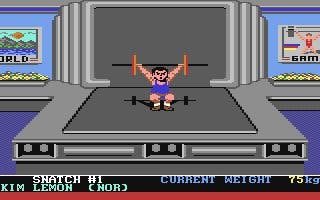World Games
Epyx on tour.
The absolute best thing about being a gamer in the mid 80s was that you didn't have to wait very long for sequels. Like The Beatles releasing two albums a year, Epyx's blisteringly prolific output of genius multi-sport games made it impossible for die-hard Speccy fans like myself to ignore the fact that the C64 had an awful lot of games that simply couldn't be ported to other machines. Dammit.
Arguably responsible for my defection to the Fudgeadore (as it was childishly known among the rubber keyed fraternity), World Games was another cast iron classic from the Epyx hit factory. Having seemingly shot its bolt with its previous three Games titles, World Games provided a pretty convincing argument to anyone who had imagined that the formula was getting stale.
By effectively opening up the events to iconic, quirky sports from around the world, Viola! A hook that provided a sense of coherence to an otherwise disparate collection of 'sports'.
So, you'd travel to Scotland to perform the Caber Toss, to the US to try Bull Riding, Russia to do some Weightlifting (tenuous), the comical Log Rolling in Canada, Cliff Diving in Mexico, Sumo Wrestling in Japan, Slalom Skiing in France, and another joke event in Germany in the shape of Barrel Jumping.

Although everyone would naturally develop their own favourites (usually related to how good they were at them), Epyx had an uncanny knack of coming up with something for everyone. Like a proto Wii Sports, all of its earlier efforts were incredibly inclusive, and with support for up to eight players, it was possible to put on some, well... epic tournaments.
To put a gloss on the package, World Games was another technical showcase for the C64, with superb, graceful character animation and wonderfully detailed backdrops helping it to become one of the most beloved 8-bit sports titles of all time.
As with most of the Epyx canon, this was later ported (usually rather lovelessly) to a multitude of other systems, but accept no imitations! Check out the original and best if you really want to see what the fuss was about.

